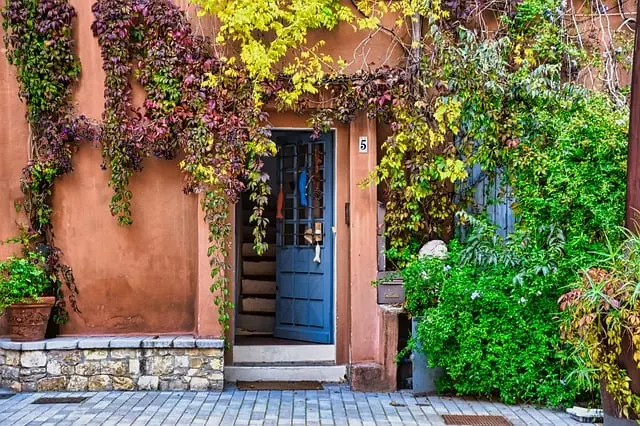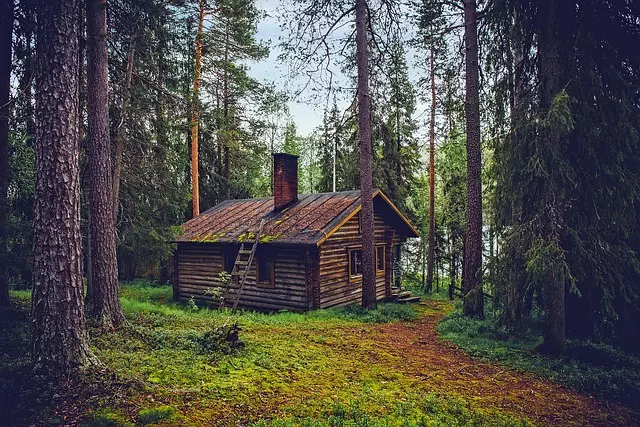House sitting is a cost-effective and sustainable alternative to traditional accommodations for snowbirds and long-term travelers, offering the comfort of home abroad while relieving homeowners from property maintenance worries during their absences. This practice provides mutual benefits, with homeowners ensuring their homes are cared for and house sitters receiving free housing and the chance to immerse themselves in local cultures. Key responsibilities for sitters include maintaining gardens, managing mail, and overseeing home systems. It's a symbiotic arrangement that requires understanding local services, laws, and regulations, including emergency contacts and garbage collection schedules, as well as being familiar with the property owner's expectations regarding pets and valuables. House sitters should also navigate the legal framework and secure appropriate insurance to ensure a compliant and secure experience. Specialized online platforms connect homeowners with trustworthy sitters, while personal referrals can also lead to stable house sitting arrangements. This guide emphasizes thorough preparation, including creating a checklist for responsibilities, understanding local culture, and maintaining open communication with homeowners for a successful and enriching house-sitting journey.
Exploring the world without the constraints of permanent housing is a dream realized through house sitting, a mutually beneficial arrangement for snowbirds and travelers seeking authentic local experiences. This article delves into the nuances of house sitting, offering insights on securing such opportunities, preparing for your stay, understanding responsibilities, and navigating legal considerations. Discover how house sitting can enhance your nomadic lifestyle, with practical advice on everything from finding the perfect assignment to ensuring peace of mind for both homeowners and sitters. Whether you’re planning a long-term getaway or short-term explorations, this comprehensive guide is your key to unlocking a world of travel possibilities through house sitting.
- Understanding House Sitting: A Comprehensive Guide for Snowbirds and Travelers
- The Benefits of House Sitting for Nomadic Lifestyles
- How to Secure a House Sitting Gig as a Snowbird or Traveler
- Preparing for Your House Sitting Adventure: Essential Checklists and Planning Tips
- Responsibilities and Best Practices While House Sitting
- Legal Considerations and Insurance for Snowbirds and Travelers Engaged in House Sitting
Understanding House Sitting: A Comprehensive Guide for Snowbirds and Travelers

House sitting has emerged as a mutually beneficial arrangement where individuals, particularly snowbirds and travelers, can enjoy extended stays in different locales without the responsibilities of home ownership. For those unfamiliar, house sitting involves responsible individuals agreeing to live in a property owner’s home while they are away, ensuring that the dwelling remains well-maintained and secure. This guide aims to elucidate the nuances of house sitting for snowbirds and travelers, emphasizing how it can offer a cost-effective and immersive way to experience new environments and lifestyles.
Snowbirds, who typically migrate seasonally between cooler and warmer climates, find house sitting an ideal solution to avoid the commitments of closing and reopening their homes. Similarly, travelers seeking authentic experiences in local communities can benefit from house sitting by gaining access to accommodations that offer a home-like setting. House sitters are entrusted with various tasks such as maintaining the garden, collecting mail, and ensuring that household systems function properly. In exchange, they receive free lodging, which can significantly reduce travel expenses. This arrangement not only alleviates the concerns of homeowners but also enriches the lives of sitters by providing them with a unique perspective on local cultures and traditions. Understanding the responsibilities and expectations of both parties is crucial for a successful house-sitting experience, making it an art worth mastering for those who love to travel or reside in different locations throughout the year.
The Benefits of House Sitting for Nomadic Lifestyles

House sitting presents a mutually beneficial arrangement for both homeowners and nomadic individuals, particularly snowbirds and travelers who lead a transient lifestyle. For those adopting a nomadic way of life, house sitting offers a stable home base that allows for extended stays in desirable locations without the financial burden of traditional accommodation. This practice enables travelers to immerse themselves in new environments, experiencing local cultures and communities as active participants rather than mere visitors. The security and care provided by a responsible house sitter also offer homeowners peace of mind, knowing their property is looked after when they are away. Moreover, for snowbirds seeking seasonal homes, house sitting facilitates the flexibility to follow warmer or cooler climates as desired, without the commitment or cost associated with renting or owning properties in multiple locations. This arrangement ensures that both parties gain access to something of value: homeowners have trustworthy caretakers for their property, and nomads enjoy the perks of ‘living like a local’ in destinations they love. House sitting, therefore, is an underutilized gem in the world of travel accommodations, offering profound benefits for those who embrace the nomadic lifestyle.
How to Secure a House Sitting Gig as a Snowbird or Traveler

When planning to travel or migrate seasonally as a snowbird, securing a house sitting gig can be a cost-effective and secure way to maintain a home base while exploring new destinations. To maximize your chances of finding a house sitting opportunity, start by leveraging trusted house sitting platforms online. These platforms are specialized in matching homeowners with responsible sitters and often feature listings from across the globe. Create a detailed profile that highlights your skills, experience, and trustworthiness. Include references from previous house sitting assignments, if available, and be clear about your availability and the level of care you can provide for homes and pets.
Networking is another pivotal strategy in securing a house sitting gig. Engage with local community groups, both online and offline, where homeowners might post their needs for house sitters. Social media platforms like Facebook have numerous groups dedicated to house sitting where you can find opportunities. Additionally, consider reaching out directly to neighbors or friends of friends who may be planning to travel and require someone they trust to look after their property. Personal referrals can often lead to the most stable and rewarding house sitting arrangements. Always ensure that your application or proposal stands out by showcasing your reliability, adaptability, and any relevant skills or experiences that would make you an ideal candidate for their home care needs.
Preparing for Your House Sitting Adventure: Essential Checklists and Planning Tips

Embarking on a house-sitting adventure as a snowbird or traveler requires meticulous preparation to ensure both the homeowner’s and your own peace of mind. Begin by creating a comprehensive checklist tailored to the specific needs of the property you’ll be caring for. This should include tasks such as maintaining the home’s security, managing utility bills, and attending to any plants or pets residing there. Research local amenities, emergency contacts, and public transportation options to navigate the area effectively. It’s advisable to familiarize yourself with the home’s systems, including heating, cooling, and alarm systems, well before taking on the responsibility.
In addition to practical preparations, consider the legal aspects of house sitting, ensuring you have the necessary permissions and agreements in writing. Communicate clearly with the homeowner about their expectations and your capabilities. Prepare for the unexpected by having a contingency plan for maintenance issues or emergencies. Organize important documents, such as house keys, Wi-Fi credentials, and contact information, in an accessible but secure location. Lastly, take time to understand the local community’s culture and customs to ensure a harmonious stay. By following these planning tips and checklists, you can embark on your house-sitting adventure with confidence, ready to enjoy the benefits of travel while providing invaluable peace of mind for homeowners.
Responsibilities and Best Practices While House Sitting

When embarking on a house-sitting assignment, particularly for snowbirds and travelers who are away for extended periods, it’s crucial to fulfill a range of responsibilities to ensure the property remains well-maintained and secure. As a house sitter, your primary duties include watering plants, collecting mail to deter burglars, maintaining the lawn, and ensuring that all systems within the home, such as heating and cooling, are functioning properly. You should also be prepared to address minor maintenance issues, report any unusual occurrences, and adapt to various aspects of the homeowner’s routine to mimic their presence as authentically as possible.
To perform these duties effectively, adhere to best practices that include thorough orientation from the homeowner about the property’s specific needs, regular communication regarding the house’s condition, and meticulous record-keeping of all tasks performed. It’s also important to stay informed about local regulations and services, such as garbage collection schedules and emergency contacts. Additionally, ensure you have a clear understanding of the homeowner’s expectations and any particular instructions they may have for their pets or valuable items. By following these guidelines, house sitters can provide peace of mind to homeowners, allowing them to enjoy their travels without worry.
Legal Considerations and Insurance for Snowbirds and Travelers Engaged in House Sitting

When engaging in house sitting as a snowbird or traveler, it’s crucial to address legal considerations and insurance coverage to ensure a secure and compliant experience. Legally, house sitters must understand their rights and responsibilities within the jurisdiction where they are staying. This includes knowledge of local property laws, tenant rights, and any specific regulations that apply to temporary occupancy. Snowbirds and travelers should confirm with the homeowner if they are authorized to receive mail, manage utility accounts, or handle emergency situations, as these actions may have legal implications.
Insurance is another pivotal aspect to consider for peace of mind. A comprehensive home insurance policy, often endorsed to cover rental or vacation use, can protect the property owner’s investment against unforeseen events such as theft, vandalism, or natural disasters while in the care of a house sitter. Additionally, renters’ insurance is an essential consideration for the house sitter. It typically offers coverage for personal belongings and liability in case of accidental damage or injury occurring during the sitting period. Snowbirds and travelers should review their policy to ensure it extends to international locations if traveling abroad, as coverage varies by country. Always verify with both the homeowner’s insurance provider and your own to ascertain the extent of coverage and any gaps that may need addressing through additional insurance products specifically tailored for house sitters.
House sitting offers a mutually beneficial arrangement for snowbirds and travelers seeking affordable lodging, as well as homeowners who require trustworthy caretakers for their properties. This article has navigated through the various facets of house sitting, from understanding its nature to delineating the responsibilities involved, ensuring that both parties can reap the full benefits. Prospective sitters will find valuable insights on securing a house sitting gig and preparing for their adventure, complete with essential checklists and planning tips. Additionally, the article has addressed legal considerations and the importance of insurance to safeguard all parties involved. In conclusion, house sitting is not just a cost-effective travel strategy but also a means to form meaningful connections between homeowners and sitters, fostering a community built on trust and shared interests. Whether you’re looking to extend your travels or provide peace of mind for a property owner, house sitting can be a rewarding choice with careful planning and adherence to best practices.


